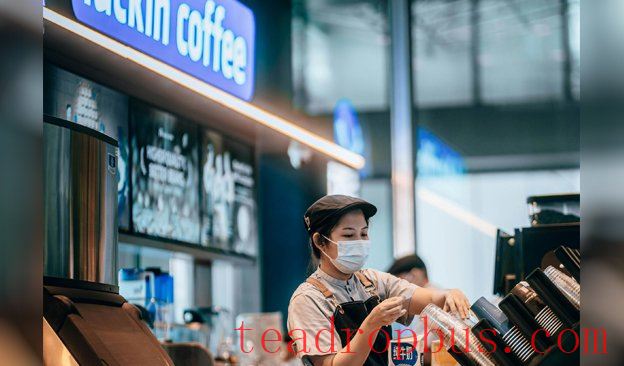
As China’s coffee industry experiences a massive boom, the country is poised to reap the benefits of Trump’s trade war with Brazil and other major coffee producers.
Over the past several months, the Trump administration has imposed a series of increasingly onerous tariffs on some of the United States' largest coffee suppliers. The most recent, a 50% tariff on imports from Brazil, could be the most consequential yet.
Brazil is the world’s largest coffee producer, and the United States is its biggest market, with more than $2 billion worth of green coffee shipped from Brazilian ports to US companies last year. Most American roasters depend on Brazilian beans for their blends, and a huge hike in the cost of imports means many will need to source those components from other countries.
Brazilian exporters will also need to look elsewhere for buyers, and one country potentially poised to benefit from Trump’s trade war is China.
China’s coffee industry is booming. Coffee consumption has exploded, rising almost 150% in the last ten years, spearheaded by low-cost, hi-tech startups such as Luckin Coffee, Lucky Cup, and Cotti Coffee. The number of cafes has skyrocketed, increasing by 12,000 stores over the past year — the country now has the most branded coffee shops in the world — and this fierce competition has led to a price war that has driven coffee prices downward.
In the face of this competition, formerly dominant foreign chains like Starbucks and Tim Hortons have struggled to compete. Starbucks, in particular, has tried unsuccessfully to resist being pulled into a race to the bottom. Despite saying that it wouldn’t join the price wars, Starbucks recently announced it would offer discounts on some drinks in an attempt to revive its flagging sales.
Domestic consumption is forecast to continue accelerating over the next five years, and although it also grows coffee, China’s annual production of 1.9 million 60 kg bags isn’t enough to meet increasing demand. Therefore, the government is making moves to procure more coffee from abroad.
In stark contrast to the United States’ increasingly isolationist turn, in June, China announced that it would remove import tariffs from nearly every African country. Analysts believe this will benefit African coffee producers, as China imported more than $165 million worth of coffee products from the continent in 2023. Furthermore, its purchases of coffee from Ethiopia, Uganda, and Rwanda have all increased in recent years.
China has hosted various coffee tradeshows aimed at boosting imports from African countries, while individual companies are also striking deals to secure their supply chains. In June, Cotti Coffee and Rwanda signed a memorandum of understanding designed to increase Rwandan coffee exports to China.
It’s not just Africa: in November 2024, Luckin agreed to purchase around $2.5 billion worth of green coffee from Brazil over the next four years. Brazil is China’s primary sourcing origin, accounting for 32% of the coffee imported to China in 2023. The total value that year was just $271 million, which puts Luckin’s billion-dollar order into perspective.
Luckin has grown at a lightning pace since recovering from a fraud scandal and resultant bankruptcy in 2022. It has set its sights on the United States as it looks to expand overseas, opening two locations in New York City in June.
It remains to be seen how tariffs will impact Luckin’s US ambitions, but they are definitely affecting the coffee sector more widely. In the longer term, as recent diplomatic and trade deals demonstrate, Trump’s trade war could shift the industry's balance of power away from the United States and towards China.